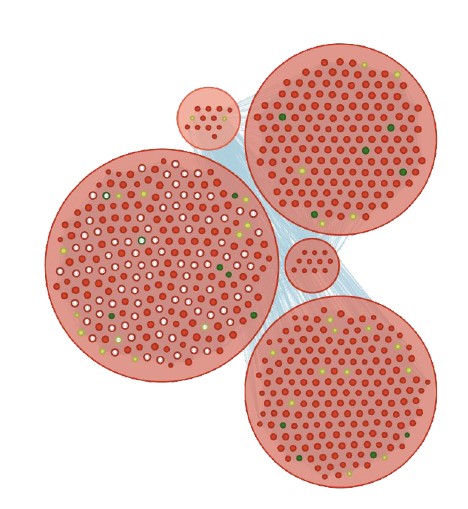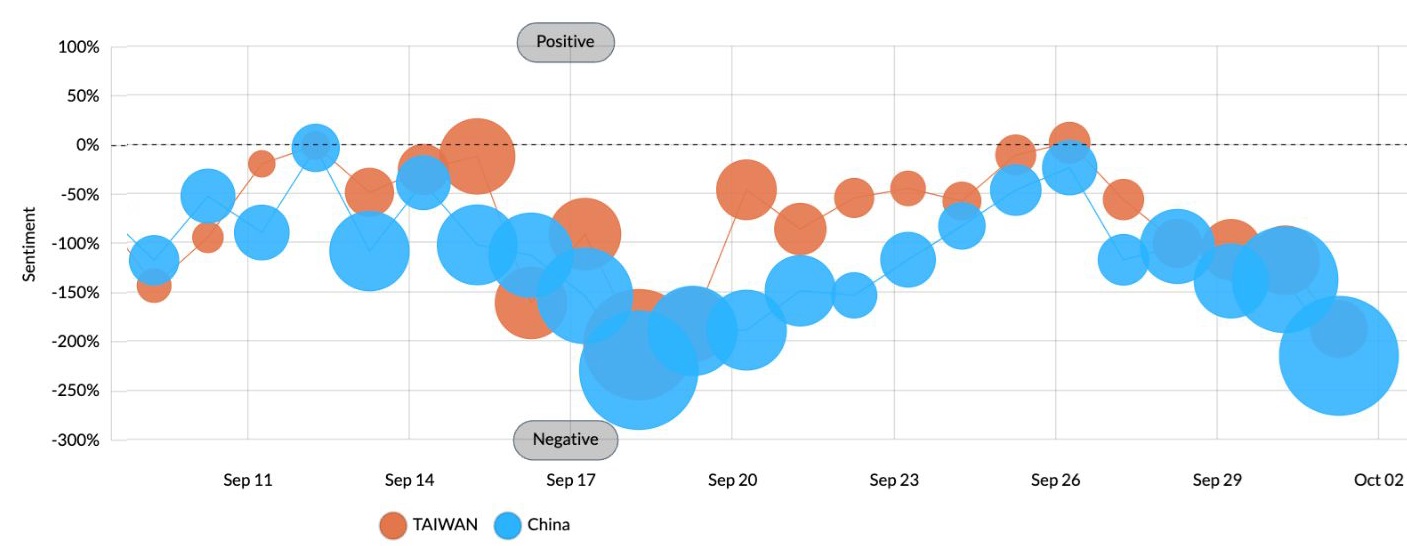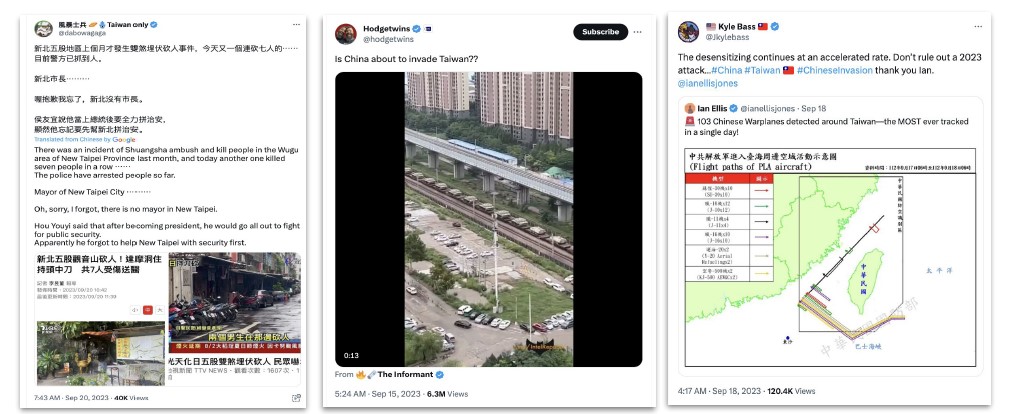The presidential elections in Taiwan (officially the Republic of China) will be held on 13 January 2024. The two leading candidates are Hou Yu-ih and Lai Ching-te. Hou, the current Mayor of New Taipei, is nominated for the presidency by the Kuomintang Party (KMT) which is considered pro-China in its agenda, advocating to promote closer relations between China and Taiwan. Lai, the current Vice President of Taiwan, runs with the Democratic Progressive Party (DPP), advocating for strengthening Taiwanese identity and independent governance.
Elections all around the world have been known to attract foreign threat actors, who take advantage of a golden opportunity to manipulate public opinion and attempt to affect major changes in governance.
This case has been no different: Cyabra has been monitoring the online discourse in the build-up to the election and we have uncovered a coordinated fake campaign designed to discredit VP Lai and promote Mayor Hou. The disinformation campaign is focusing both on presenting Lai and the DPP as corrupted and dangerous to Taiwan’s security, and promoting Hou and the KMT as the only logical solution to the China-Taiwan relations crisis. Bots have also promoted concerning statements made by American ambassador Xie Feng, as well as hints of military action taken by China, implying an impending war between the two nations.
Cyabra analyzed over 7,400 profiles involved in the China-Taiwan elections discourse on Facebook, X (Twitter) and TikTok between September and October 2023, and studied trending hashtags such as #TaiwanChina, #侯友宜 (Hou Yu-ih), and #賴清德 (Lai Ching-te). Here’s what we’ve uncovered:
Coordinated Fake Campaigns Against Lai
Cyabra’s analysis of the conversation around candidate Lai Ching-te found that 74% of the profiles discussing Lai were inauthentic accounts. Cyabra uncovered three coordinated bot campaigns consisting of 50 to 180 fake profiles each. The accounts engaged in similar behavior, spreading negative propaganda in a coordinated effort. The campaigns spread alleged illegal actions of Lai, mainly around illegal buildings in Taiwan, further declaring Lai “unfit for President.”
29% of the profiles that took part in conversations about China and Taiwan created and shared content that was negative towards Lai and the DPP. 48.29% of them created and engaged in content around the news and concerns for an upcoming war, the future of Taiwan, and the China-Taiwan conflict. 44.5% of these profiles did so while interacting with and spreading negative content.
20% of the profiles in conversations about China and Taiwan were inauthentic. The coordinated bot campaigns tried to weaken Lai and the DPP party’s political platform, which favored a stern approach towards relations with China compared to opponent Hou.

Coordinated Fake Campaigns Promoting Hou
Cyabra analyzed the profiles interacting with Hou on Facebook and identified a series of coordinated bot campaigns promoting Hou’s presidential platform and spreading negative content around Hou’s opponents. 31% of the profiles discussing Hou on Facebook were inauthentic accounts. Key influencers’ posts claimed that Hou’s political platform would change Taiwan in a positive way, and the coordinated fake campaign amplified the message, sharing graphics supporting this agenda.
The trending hashtag #侯友宜 (Hou’s name) increased during September, with peak use between September 20 and 25, when it received 1.5k engagements (likes, comments, and shares).

China-Taiwan Relations
Cyabra analyzed the fluctuating sentiment around Taiwan and China in the online discourse, which was consistent with the tension in the region. Coordinated campaigns diluting the negative discourse around China’s military activity started in September, as tension in the region rose. Cyabra identified that Taiwan’s sentiment had dropped -1,283% between September 15th and 16th, and China’s sentiment had dropped -3,583% between September 12th and 13th.

With 33.7% of profiles engaging in negative conversation about the heightened relations between Taiwan and China, Cyabra analyzed the top posts contributing to the discourse, which discussed the failing security of Taiwan under the current governance of the DPP party and the high potential of a Chinese invasion of Taiwan. As the topic of China’s military strategy started trending online, the bot campaigns utilized the hashtag #ChinaThreat.

Read Cyabra’s full analysis on this topic, which includes a further dive into the China-Taiwan relations as it was featured on social media, key influencers in the discourse, and further analysis of the fake campaigns that spreading in recent months on Facebook, Twitter and TikTok.
If you’d like to learn more about Cyabra’s capabilities of monitoring elections online and of our SOCMINT and OSINT tools, contact us.


